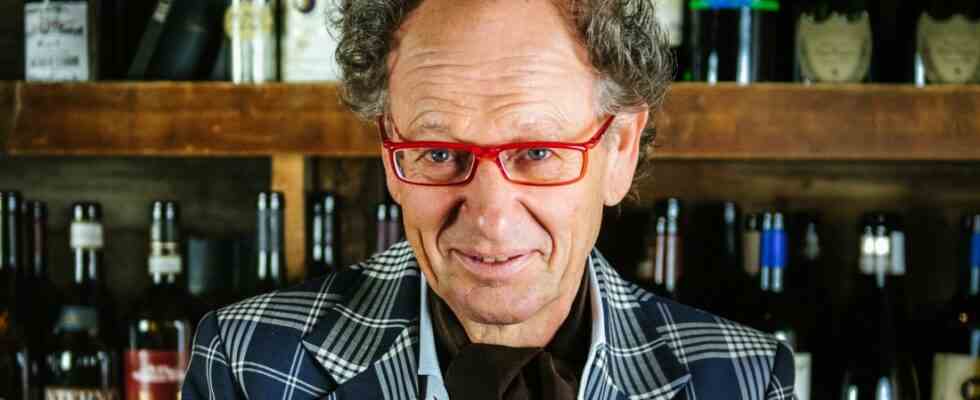Can someone who lives in a glass house throw stones? Absolutely, insists hotelier Michil Costa, who runs a hotel in Val Badia and is still harsh on tourism in his native South Tyrol. “Get out of the hustle and bustle!” is the title of his book, which is a plea against undesirable developments in tourism. And Costa is vehemently demanding an end to this hype. However, without having a patent solution on how to effectively counteract the excess of tourism in South Tyrol.
This makes Costa, who runs the “La Perla” hotel in Corvara together with his family, naturally vulnerable. A man who perfects luxury in his hotel, which belongs to the “Leading Hotels of the World” group, mocks the excesses of mass tourism? In other words, about people who would also like to travel to the Dolomites, but who don’t exactly spend 600 euros per night for a double room and can thus support a tourist concept in which care for employees, suppliers and the local way of life is particularly important . Quite apart from the fact that the ecological balance sheet of luxurious hotels is extremely miserable due to the very high energy consumption per guest.
Michil Costa knows about this problem. But does that delegitimize him from thinking about ways out of the current misery? Hardly: It is always better if the change comes from within. And that there is a need for a change in tourism in South Tyrol, there is perhaps no consensus in the northern Italian region, especially not in politics. But the suffering of the residents is constantly increasing.
Instagram hotspot: The Pragser Wildsee has been overrun by tourists in recent years, which is why only a certain number of cars are now allowed to enter the mountain lake in the Puster Valley.
(Photo: Imago/IPA Photo)
The heavy traffic has long been an immense problem, as well as the high prices for real estate and – not to be underestimated – the feeling of being only a marginal figure in one’s own homeland, unless one is part of the tourist spectacle.
Michil Costa addresses two of these points: The loss of one’s own cultural identity can be prevented if one is aware of it and communicates it to the guests. And the traffic gridlock should also be prevented. Costa refers to the Brenner base tunnel, which should be completed in about ten years, and urges that connections be made in individual South Tyrolean valleys now.
He also calculates how much the cycle tourism, which he believes is still underestimated by regional tourism politicians, could relieve traffic – if only because the length of stay of these holidaymakers is demonstrably significantly longer than the average overnight stay; That alone noticeably reduces arrival and departure traffic. If you make cycle tourism more attractive by banning motorized private transport on the Dolomite passes more often than before, several effects would reinforce each other: more nature conservation, less noise pollution, less traffic jams, more respect – after all, a lot is related to a lot.
The primary focus for Michil Costa is hospitality. He has very precise, very rigid ideas about it, which cannot easily be transferred to every bed and breakfast. But one of his thoughts is universally applicable, even if it appears radical: “The guest is by no means always right,” writes Costa at one point. Means: hoteliers and their employees shouldn’t put up with everything, shouldn’t belittle themselves unnecessarily. This includes self-confidence – which of course must be covered by an achievement that stands behind it – and sincerity. Because the guest should not be fooled, says Costa. He likes to serve South Tyrolean bacon. But real, traditionally produced ones, and not one from pigs that were fattened under dubious conditions in Hungary and only carry the label. Away from a marketing image towards a down-to-earth attitude – that is Costa’s credo. Knowing that he himself does not correspond to the ideal he postulates in all respects.
Michil Costa: Get out of the hustle and bustle! A plea against the tourist monoculture. Translated from the Italian by Annette Rübesamen. Raetia Verlag, Bolzano 2022. 204 pages, 17.90 euros.

